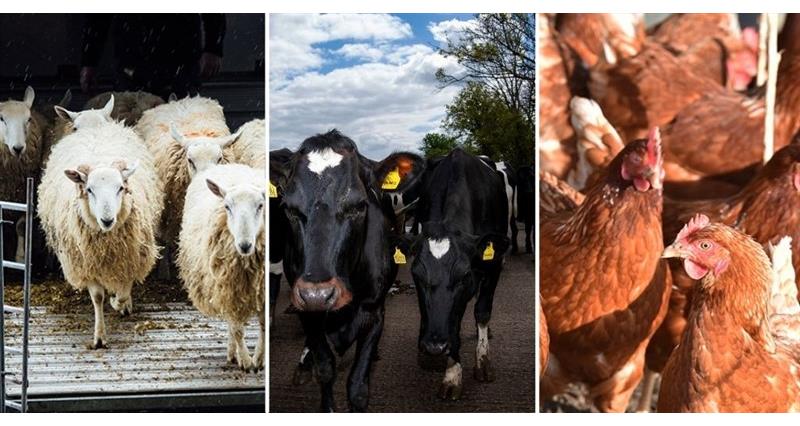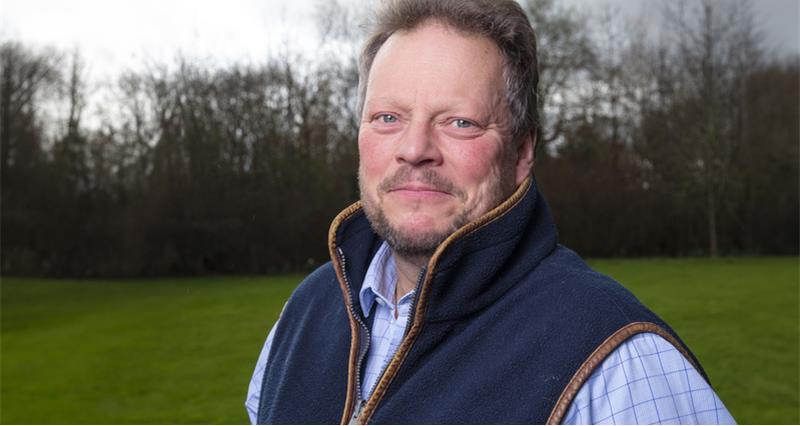»ĘĽŇ»ŞČËLivestock Board has set its priorities for the 2024-2026 term.
With a new chair, vice chair and board – which includes the chairs from the Uplands North and South regional groups – the board has an opportunity to re-set its priorities and deliver on an ambitious work plan in the next 12 to 24 months.
The British beef and lamb sectors are seeing some significant challenges – transitioning to the new and evolving SFI scheme, facing more unpredictable weather and the ongoing need to demonstrate our journey to greater sustainability and the steps being taken to reduce our climate footprint.

Board priorities
1. Emissions from the red meat sector
The board will support the delivery of the beef and lamb net zero roadmap. Provide a vision for the sector which is focused on climate and the environment as well as profitability.
It will lobby Defra for carbon calculator funding through the ATP (Agricultural Transition Programme) and SFI (Sustainable Farming Incentive).
To achieve harmonisation of verified carbon accounting tools, the board will ask for accessible and better quality on-farm data that has inherent complexity and variability. It will seek to be custodian of that data and support discussions.
The board will lobby Defra for standardisation of farmer inputs and accessible data sharing. It will seek to enable the Livestock Information Service to make greater use of existing statutory data and to integrate non-statutory information to inform/increase productivity.
2. Farm Assurance Review
»ĘĽŇ»ŞČËLivestock Board will seek fundamental change in the audit process to reduce the audit burden. It will establish the board’s vision for a future beef and/or lamb scheme and encourage members to attend NFU assurance meetings and provide feedback.
3. Animal health and welfare
On BTV3 response and strategy, the board will:Â
- Produce an outbreak plan to best prepare members for a range of potential scenarios.
- Lobby for increased funding and resources for APHA.
- Lobby for reasonable regional restrictions that slow or mitigate the spread, but limit trade disruption as much as possible.
- Actively engage with Defra and pharmaceutical companies on the prospect of a vaccine and consider deployment strategy.
On the responsible use of medicines, the board will engage with RUMA and encourage greater sector reporting of medicine use using the e-medicines hub.Â
It will seek to improve the Animal Health & Welfare Pathway by encouraging uptake among beef and sheep members.
Welfare policies (on farm and in transport) – the board will shape the outcome of Defra proposals to encourage pain relief for on-farm practices such as castration, tail docking and de-horning.
4. Bovine TB policy
The board will prioritise wildlife control measures (culling and vaccination), cattle controls and cattle vaccination, working to secure the the continuation of badger control through targeted industry led culling.Â
5. Livestock Information Service and BEID
The board will produce a communication plan for the introduction/roll-out of EID for newborn calves.
It will establish its position on the solution for EID for the historic herd.
And it will lobby Defra to achieve a commitment to tag technology – LF/UHF.
6. Livestock Information Service (LIS)
The board wants to see:
- Multi species database launched by the end of 2025. The board will provide user testing and solutions/options to drive digital uptake.
- Increased engagement in the sheep service to help deliver real-time reporting of movements. The board will actively promote the need to improve sheep traceability among members.Â
- Removal of paper passports for cattle. We will lobby Defra for transition and printable movement documents.Â
- Simplified holding registration, TLA and tCPH policy. The board will engage with Defra to build a simplified digital process.Â
- Value added data solutions. Board proposals to include genetics, performance (age at slaughter, carcase weights, CCIR, health info at the point of sale).
7. Relationships with major meat processors and the wider supply chain
To build even better relationships between the board and the processing sector, board members will carry out ambassadorial visits.
8. SFI/ATP funding
The board is seeking greater options for the livestock and uplands sectors from the government’s productivity schemes. It wants an established and clear timeline and process for the HLS-ELMS transition.
»ĘĽŇ»ŞČËLivestock Board will shape and develop the SFI offer for livestock members through feedback and proposals. It will lobby for clear SFI timelines and details to ensure the scheme is accessible and fit for purpose.
9. Small abattoirs
Supporting the roll-out of the small abattoir fund, the board will lobby for risk-based and proportionate regulation and application of official controls.
10. Sheep carcase classification and price reportingÂ
The board aims to ensure legislation resulting from industry consultation is developed and domestic SI implemented. It will encourage rapid rollout out of the new process – ending rounding down, consistent dressing spec and improved price reporting.
Update October 2024: The government has confirmed it will bring forward legislation to mandate sheep carcass classification and price reporting. The new legislation will cover standardising dressing specs, weighing carcasses to 0.1 kg and price reporting for all abattoirs processing more than 2000 sheep per week, with full oversight provided by the RPA.Â
11. Trade policy
The board will monitor import and export trade flows and support trade missions alongside AHDB, Defra and DBT.
12. PromotionÂ
On the value of the Halal market and consumer insights, the board will support market access.

